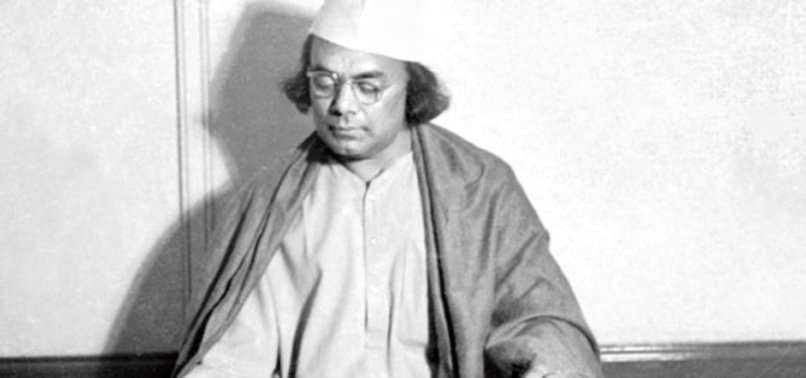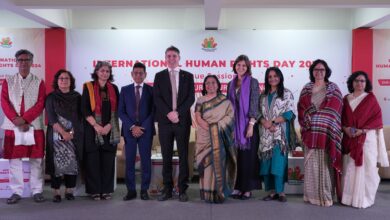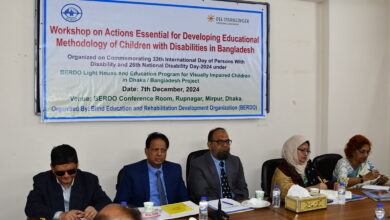National Poet Kazi Nazrul’s 46th death anniversary today

The 46th death anniversary of National Poet Kazi Nazrul Islam will be observed in the country today in a befitting manner.
On August 27 (12 Bhadra of Bangla calendar year) in 1976, the poet breathed his last at the then PG Hospital, now Bangabandhu Sheikh Mujib Medical University Hospital after a decades-long illness and was buried near the central mosque at Dhaka University, as he had wished during his lifetime, so that he could “listen to the sweet tone of the Azaan”-the Islamic call to prayer.
Different political parties, socio-cultural and professional bodies have chalked out elaborate programmes to observe the day.
The programmes include placing of wreaths at the grave of the poet, discussions, song and poetry recitation sessions and staging of dramas from the creative literary works of the poet.
Besides, Bangladesh Betar and Bangladesh Television, and other private television channels and radio stations will air special programmes, while the national dailies will publish special supplements.
Kazi Nazrul was a poet, lyricist, musician and philosopher.
The nation got inspirations from Nazrul’s poems and songs during the great Liberation War in 1971 and all other democratic movements and struggles.
Nazrul wrote nearly 3,000 songs and composed many of them which are known as Nazrul-Geeti or Nazrul Sangeet.
In the history of Bangla literature, his position is unique while his hundreds of songs highlighting Muslim, Hindu cultures and religions, took him to unparalleled heights in both communities.
During the massive movement against British colonial rule on the Indian sub-continent, Nazrul’s rebellious poems and songs inspired the masses.
The “National Poet” and “Rebel Poet” in Bangladesh, was born in a remote village in India’s West Bengal in 1899 to a poor Muslim family.
After the independence of Bangladesh, Father of the Nation Bangabandhu Sheikh Mujibur Rahman brought poet Nazrul Islam to Dhaka from Kolkata along with his family and made arrangements for living with state honour.
Bangabandhu also provided a residence for the family of the poet in the city’s Dhanmondi.





